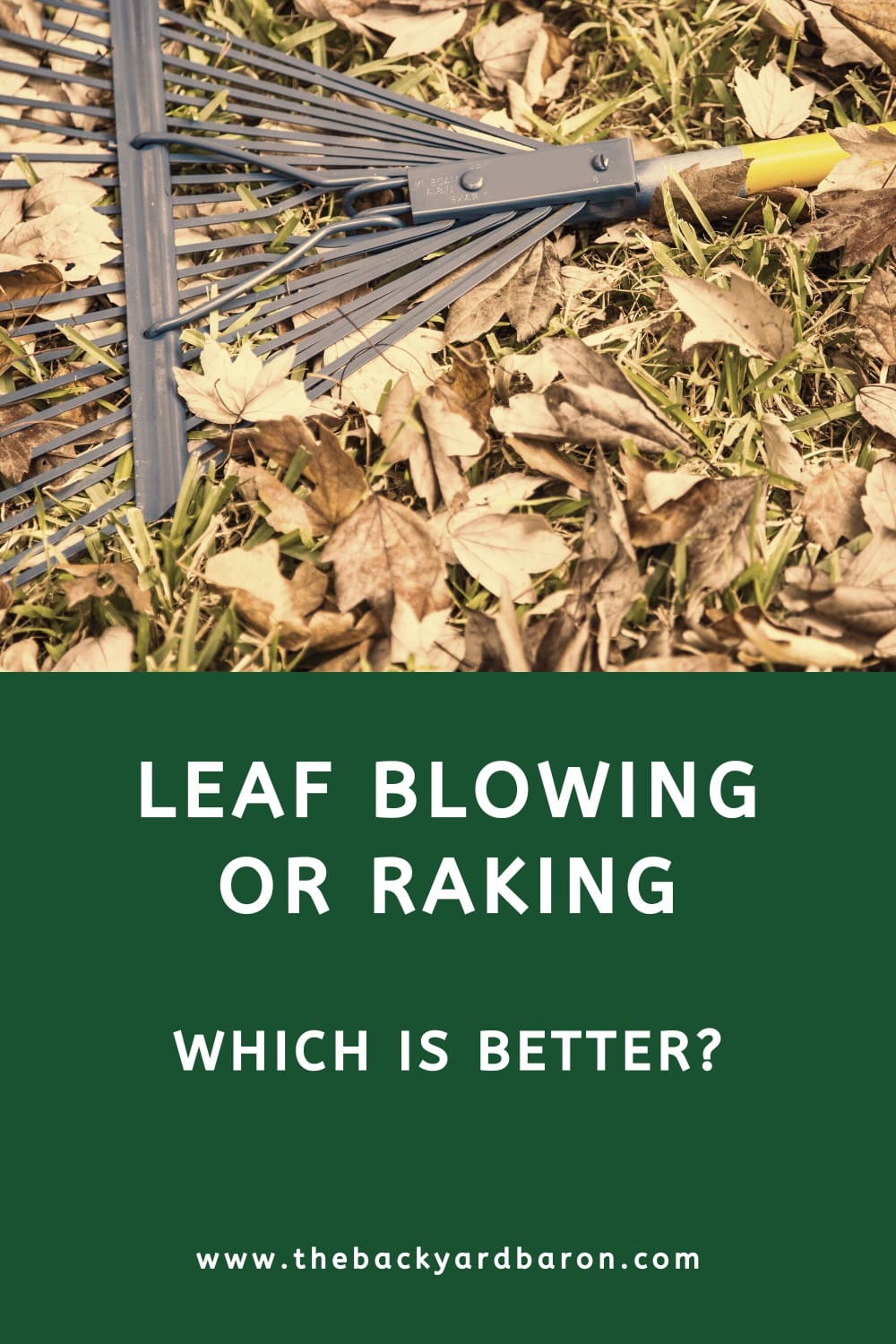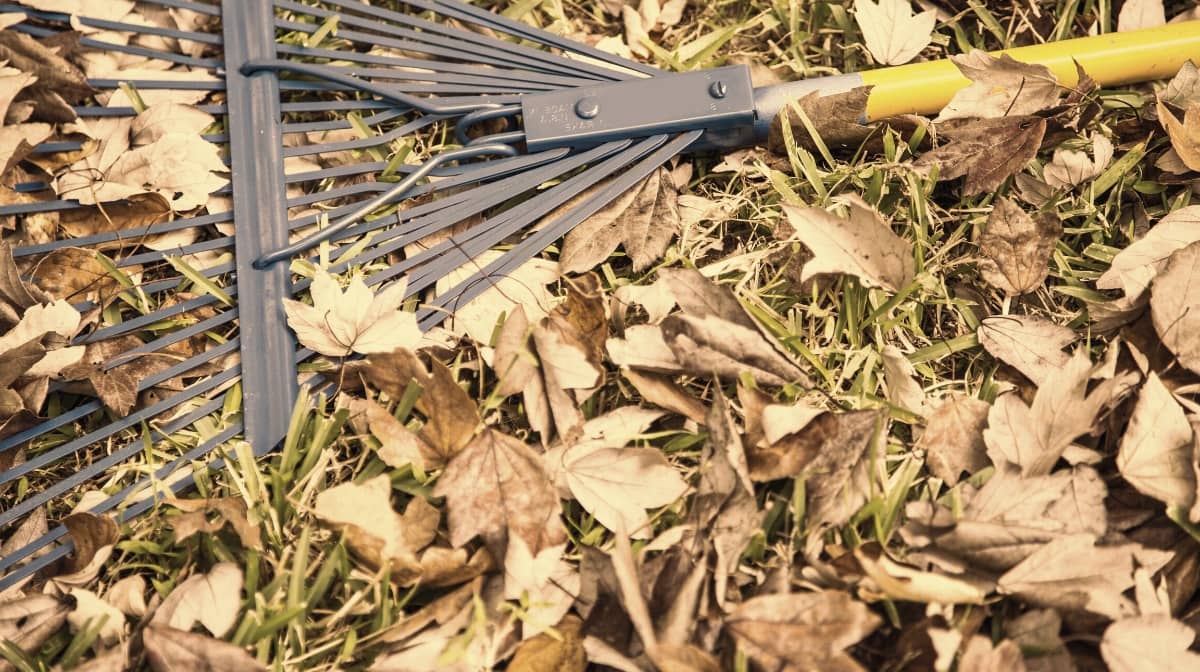Last updated: January 20, 2024
This guide explores the pros and cons of leaf blowing and raking to help you decide which option is best for your needs.
When the leaves turn those beautiful shades of brown and red and eventually fall to the ground, you know it’s time to bring out the leaf blower or the rake to clean up the yard. But which one is best?
Leaf blowers tend to be heavy and noisy, and cause air pollution if gas-powered, but they clear leaves very quickly. On the other hand, rakes are environmentally friendly, come in all shapes and sizes, and are light and safe to use, but raking takes more effort and can be hard on the lower back.
When it comes to clearing up fallen leaves from your yard, you need to determine what the desired result is going to be before choosing between a leaf blower and a rake. Let’s look at the two leaf-removal options and check the pros and cons of each.
Leaf Blowing or Raking?
The considerations below will help you decide between using a rake or a leaf blower.
But you might even want to buy both. Why? Let’s find out.
1. The Different Results
If you simply want to clear leaves from one area to another, then go ahead and use a blower. But if you’re going to collect leaves and use them for compost or dispose of them, the rake is better.
Admittedly, that statement sounds a bit simplistic, but it does hold a lot of truth.
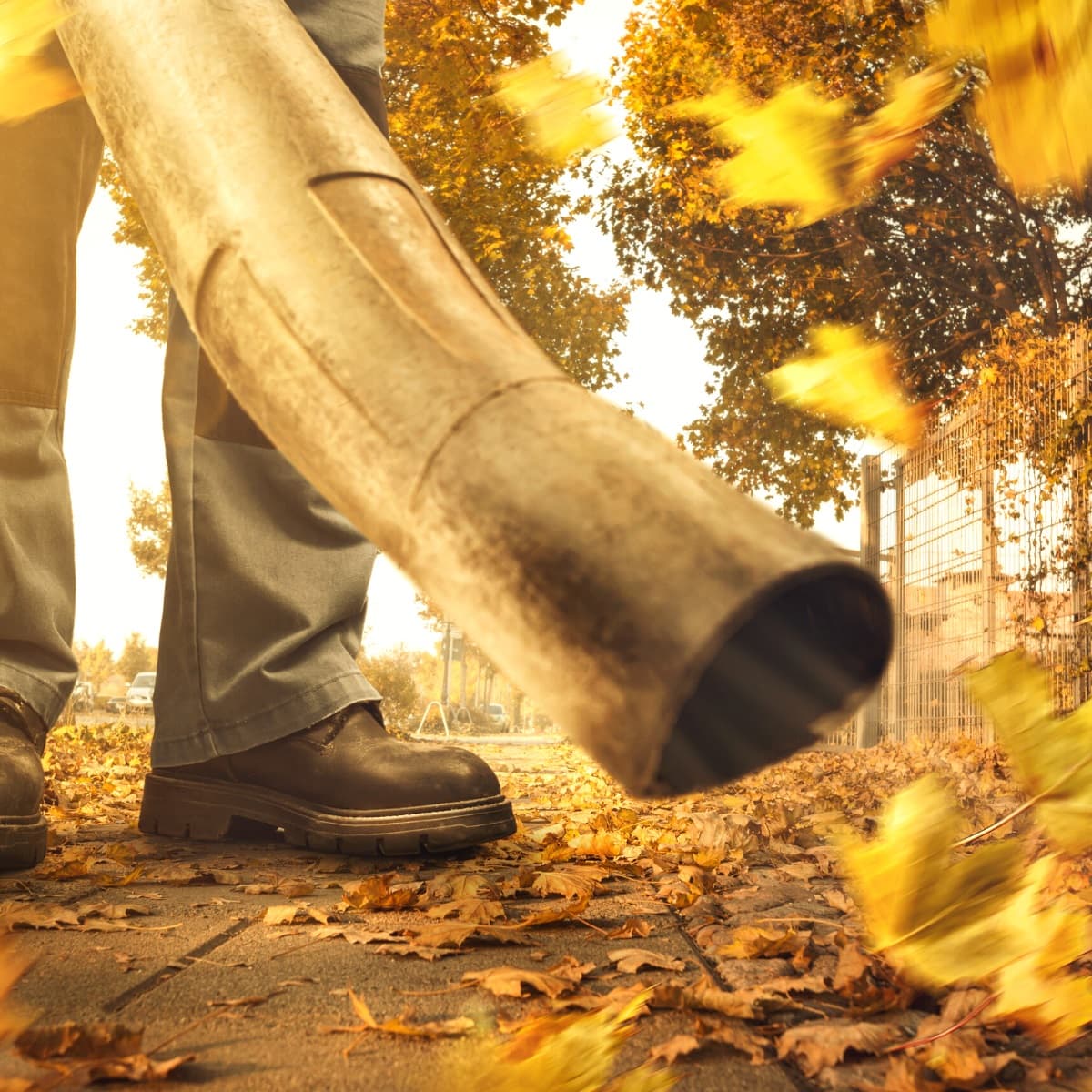
Leaf blowers move leaves from one place to another using a gas or electrically-powered engine to create high RPMs and generate wind force. It doesn’t clean them up but blows them off your lawn. If your goal is only to remove leaves but not necessarily collect them, then the leaf blower is your tool of choice.
The rake will collect leaves into one place, and then you can put them in a bag or an outdoor composting box to use in your garden during the fall, spring, and summer. If this is your goal, then the rake will be the winner.
2. Noise and Pollution
Here, the rake wins this battle without question.
Leaf blowers proved so noisy that many cities and local governments have ordinances against using them in urban areas with hefty fines for infringement.
A gas-powered leaf blower can generate as much as 100 dB in low-frequency noise, like a plane taking off, which, as you can imagine, is a cause of disturbance for neighbors and wildlife alike.
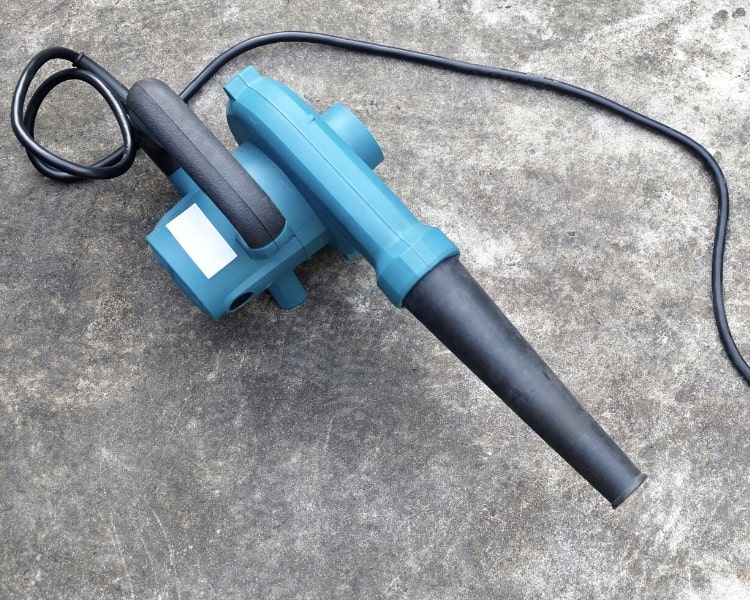
Although it must be stated that leaf blowers have come a long way, especially electric leaf blowers are far less noisy than their gas-powered counterparts. However, electrically powered leaf blowers are still loud compared to the gentle sounds of the rake brushing over leaves.
Go and take a look at my leaf blower buying guide with an outline of the different types of leaf blowers that exist with buyer’s recommendations.
What about pollution?
According to the California Air Resources Board, operating a commercial leaf blower for approximately one hour emits as much pollution as driving a car for 1,700 kilometers . Ouch.
The other issue with leaf blowers is that they don’t only blow leaves. They can lift dust, pollen, and anything else lying on the ground into the air. This can cause allergies and other issues if you’re not wearing a respirator or mask when using one.
In short, the rake is better if you want the peace, quiet, and zen-like sound of leaves being collected with zero emissions.
3. Efficiency and Effort
Using a rake takes effort and time, and if it’s a big yard, you may not get the job done in one session.
Bending over a lot when raking leaves does put a strain on your back and body. Raking can indeed be a reasonably strenuous activity, but the exercise involved in raking can also be considered a good thing.
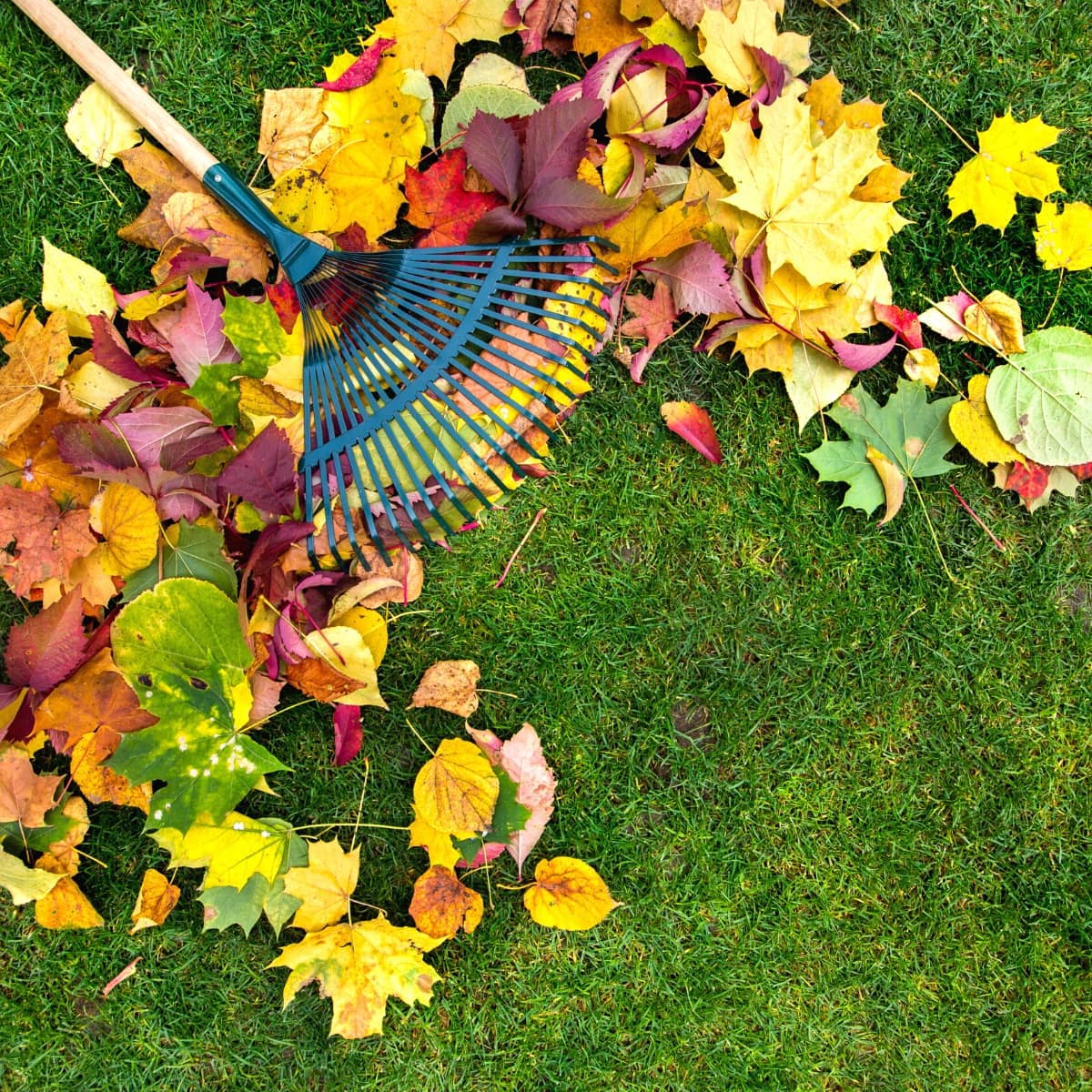
But raking is just not as efficient as using a leaf blower.
While the leaf blower is heavier, it requires far less effort to use and clear leaves than the rake. Modern ones are also lighter, making them easier to use.
Clearing a yard full of leaves using a blower will take far less time and effort, so if efficiency is your primary focus, the leaf blower wins that one.
4. Versatility
Leaf blowers can blow other things too, like snow before it hardens, and many different types of debris. Rakes, on the other hand, well, they can only rake leaves.
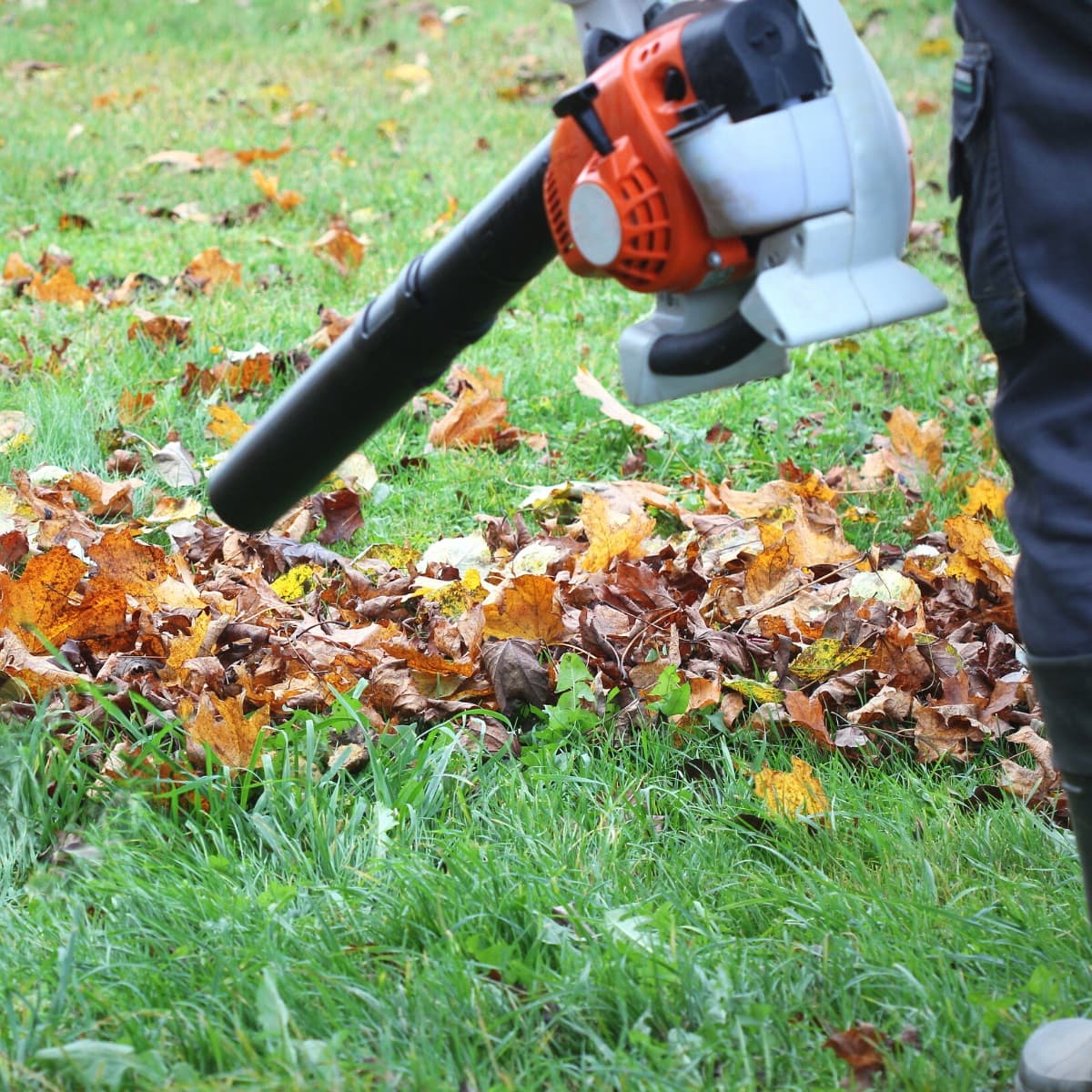
The leaf blower can also be used to remove and blow grass clippings and dirt away from sidewalks and clean gutters and outdoor cookers.
In short, leaf blowers are much more versatile than rakes.
5. Costs and Maintenance
Rakes are cheap to purchase, and even an expensive one will easily cost less than $100, while good-quality leaf blowers run into the hundreds of dollars.
But the purchase price is not the only cost factor to consider. Gas-powered leaf blowers require fuel and oil and also periodic servicing. Electric leaf blowers require either batteries or electricity, and they also need servicing.
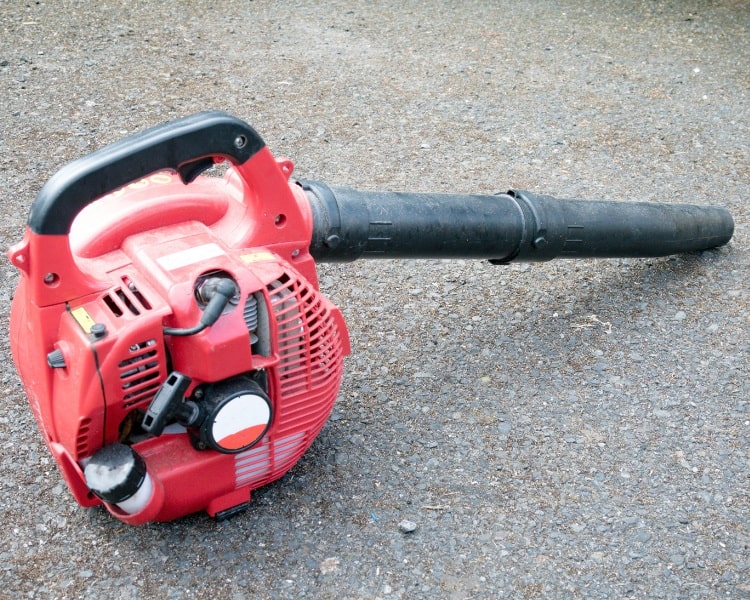
As for the rake, well, the only time it would need any attention that could cost anything is if you break the handle and have to buy a new one. Rakes don’t require maintenance aside from a quick rinse-off after use.
Like leaf blowers, rakes also come in various designs and materials, from plastic to steel. Depending on the application, you can opt for rakes with a longer or shorter handle to match your height and make them more comfortable to use.
If upfront and maintenance costs are a consideration, the rake definitely wins in this category. It should also be noted that while your kids can use a rake safely, handing your 12-year-old a $400 leaf blower may not always be a good idea.
6. The Best Of Both Worlds
Used together and intelligently, the leaf blower and the rake can become best friends in your arsenal of gardening tools.
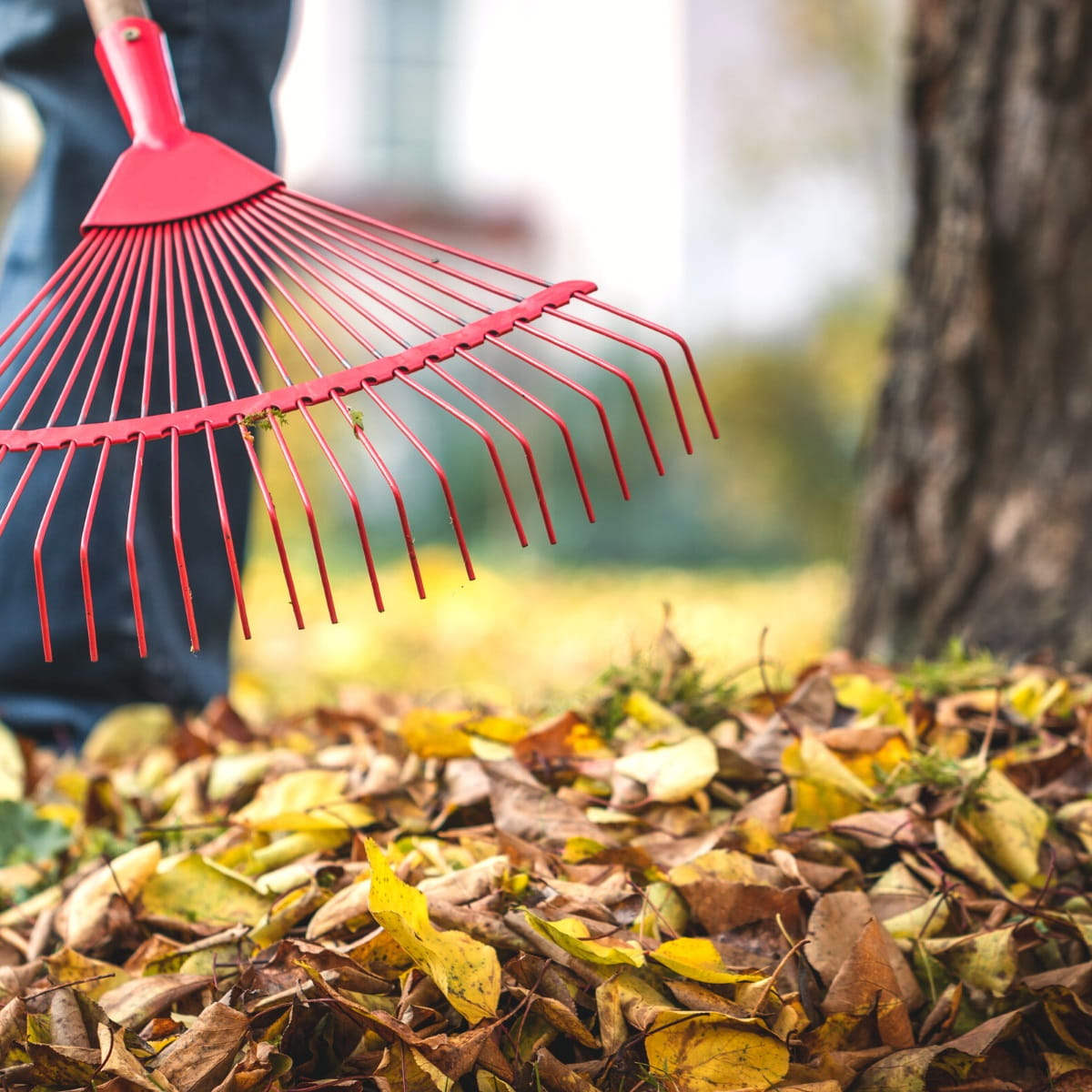
Use the leaf blower to blow leaves into piles for collection and remove leaves from spaces where rakes cannot go. Then use the rake to collect them into bags or for mulching.
In other words, you will find a synergy between these two tools.
The Verdict
A leaf blower or a rake? Well, I use both for my yard.
Personally, I use a battery-powered handheld leaf blower for the heavy work, and a sturdy leaf rake for the smaller chores.
You can comfortably have a rake and a leaf blower in your backyard storage shed and use them effectively to maintain your yard throughout the year, balancing cost, effort, efficiency, and noise.
That way, you reduce your maintenance and operational costs on your blower, get some exercise and fresh air, keep your neighbors happy, not fall foul of the law, and achieve the goal for which both were designed: a leaf-free yard all year round!
